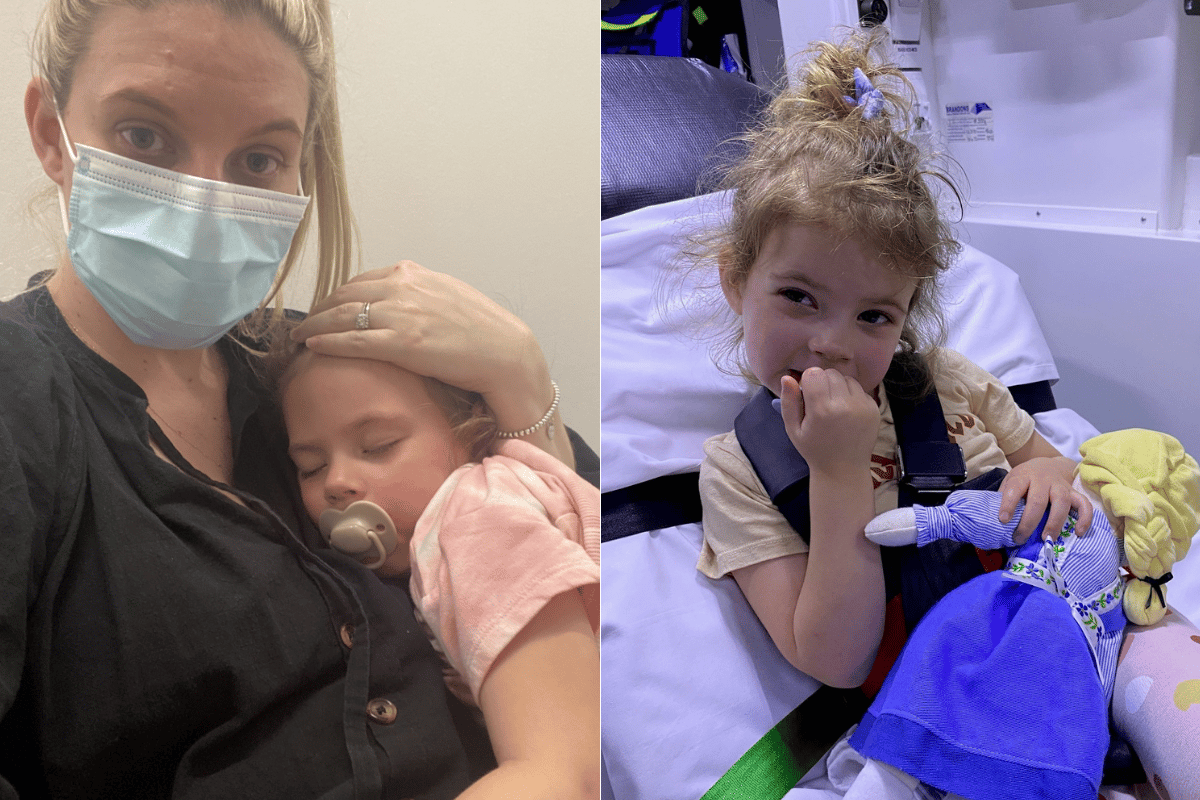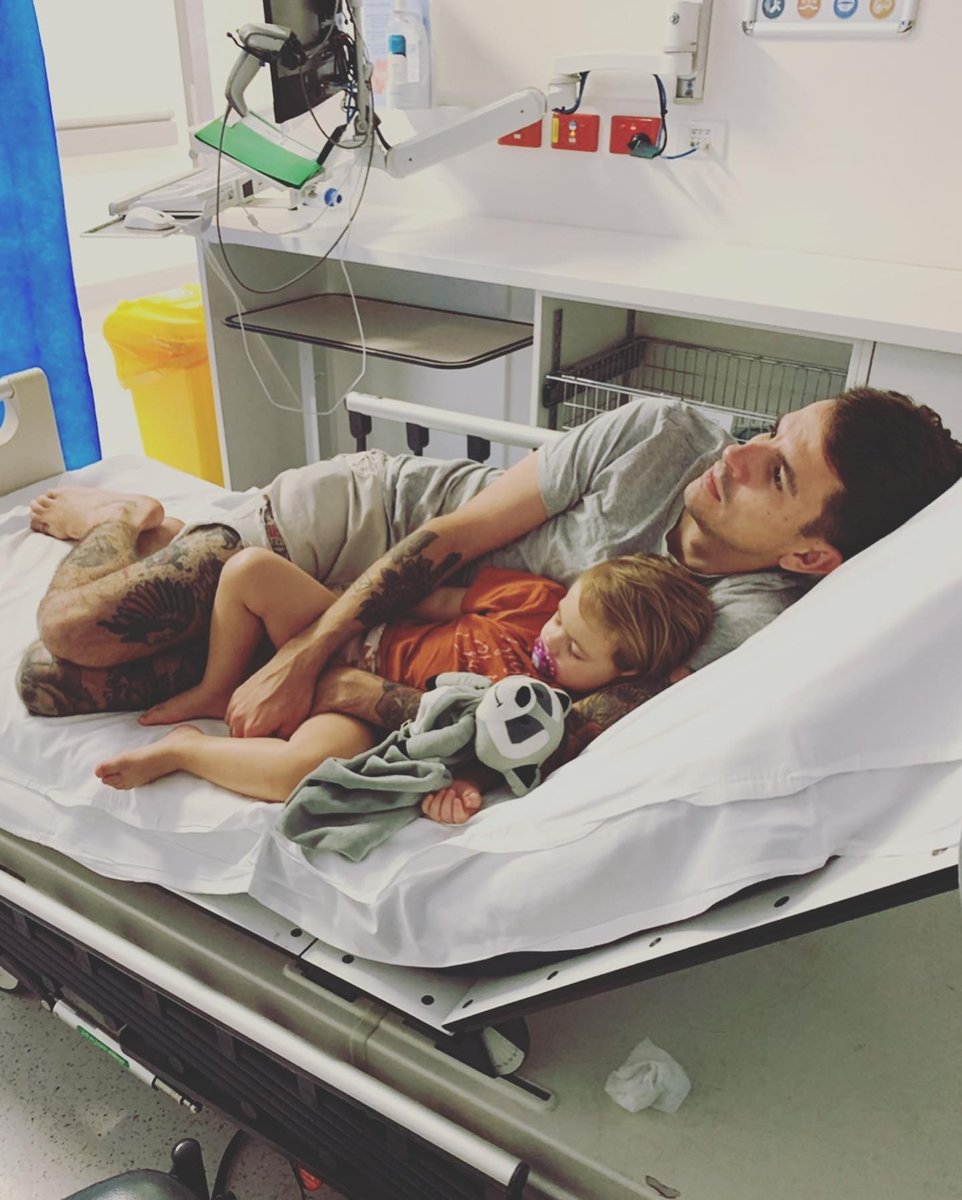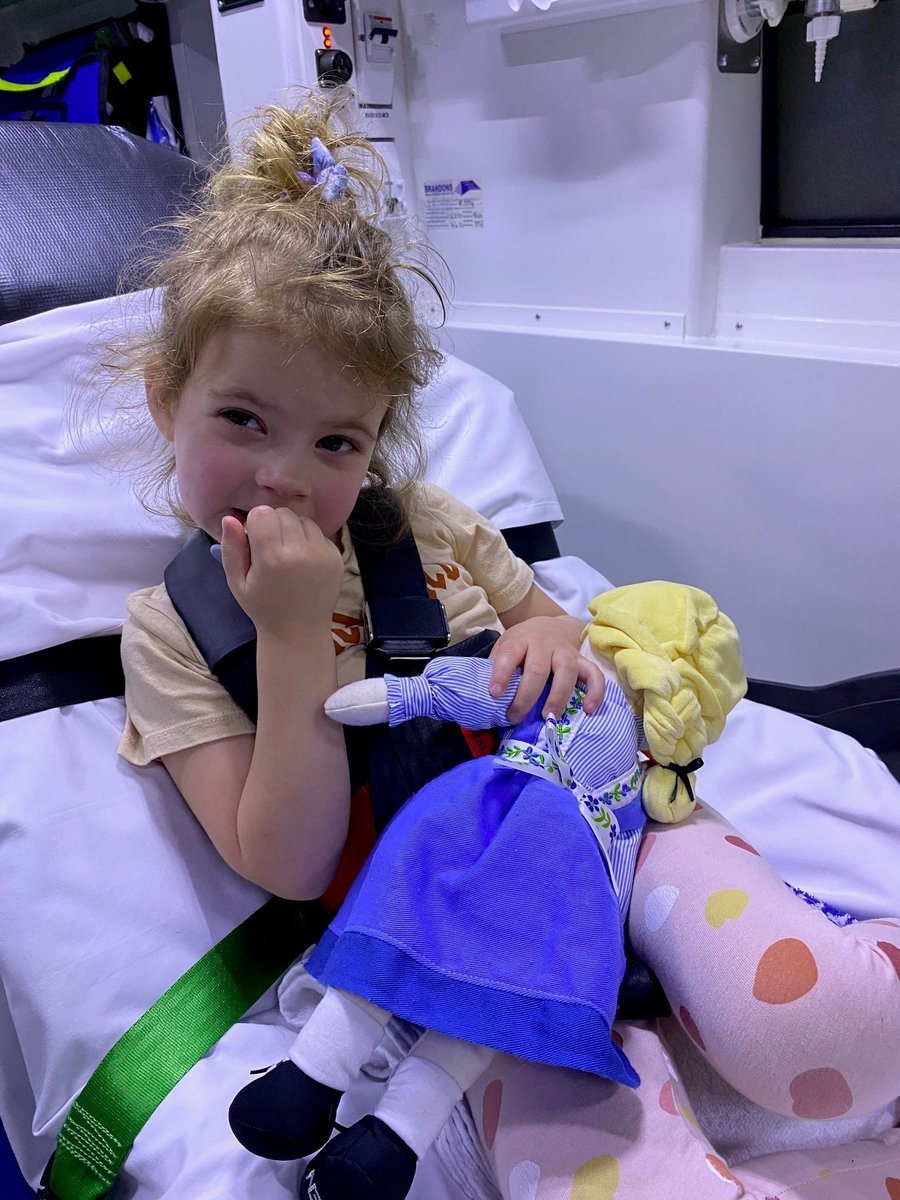
It was 11pm at night on Cavill's 29th birthday.
Driving down a (thankfully) quiet highway, Cavill's partner Adam suddenly slammed on the brakes, yanking their car across three lanes to the side of the road. Terrified, she looked in the rear-vision mirror to see her one-year-old daughter Emmy convulsing in the backseat.
"We had no idea what was going on," Cavill told Mamamia. "I just remember needing to get in the back as quickly as possible, even though I didn't know what I would do when I got there.
"To look back at her, and her little arms and legs were stretched out, and her head was back. I will never forget the visuals," Cavill added.
Watch: What to do if someone is having a seizure. Post continues below.
The next 17 minutes as they waited for an ambulance to arrive felt like a lifetime for the parents. Emmy was unresponsive, and Cavill thought she had stopped breathing.
"My husband was trying to breathe into her mouth and give her CPR. But we had no first-aid training."
Unsure whether to move her baby, a desperate Cavill directed her questions to the emergency dispatcher. Is she going to have brain damage? Is she going to die? She went through every nightmare scenario, her panic increasing.



Top Comments